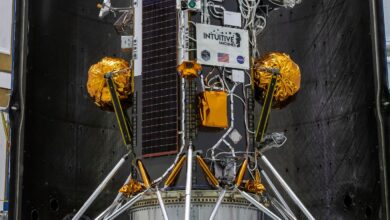System-Wide Safety Project Description
2 min read
Preparations for Next Moonwalk Simulations Underway (and Underwater)
A new era of aviation is here, and NASA’s System-Wide Safety (SWS) project is developing innovative data solutions to assure safe, rapid, and repeatable access to a transformed National Airspace System (NAS). SWS was created in 2018 and is part of NASA Aeronautics’ Airspace Operations and Safety Program. SWS evaluates how the aerospace industry and aircraft modernization impacts safety by using technology to address future operational and design risks.
SWS Goals
- To explore, discover, and understand the impact on safety of growing complexity introduced by modernization aimed at improving the efficiency of flight, the access to airspace, and the expansion of services provided by air vehicles
- To develop and demonstrate innovative solutions that enable this modernization and the aviation transformation envisioned for global airspace system through proactive mitigation of risks in accordance with target levels of safety
To transform the NAS, SWS employs high-risk research and development to understand how the modernization of industry and aircraft can affect overall safety. SWS is developing and demonstrating innovative solutions within several key research areas, referred to as technical challenges.
Current Technical Challenges (TCs)
- TC-2: In-Flight Safety Predictions for Emerging Operations
- TC-4: Complex Autonomous Systems Assurance
- TC-5: Safety Demonstrator Series for Operational In-Time Aviation Safety Management System
- TC-6: In-Time Aviation Safety Management System
SWS is developing the concept and requirements for an assured In-Time Aviation Safety Management System to achieve the goals described above. It is an integrated set of services, functions, and capabilities to address operational risks and hazards of a transformed NAS. SWS catalyzes the discovery of the unknown and paves the path forward for aviation safety in the future airspace.
Back to main System-Wide Safety project page.
Share
Related Terms
First published at NASA.gov











